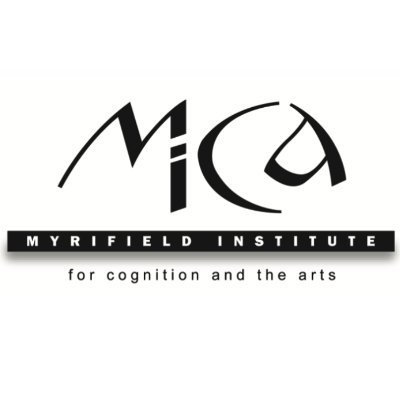Call for papers “The Digital Environmental Humanities. Towards Theory and Praxis”
All HJEAS’ archived issues are available on JSTOR, the largest, most available website for humanities journals, current issues are also accessible electronically on ProQuest, including the most recent indexed by the SCOPUS database, indexed and abstracted by the MLA International Bibliography. For more about the HJEAS go to: [https://ojs.lib.unideb.hu/hjeas/about].
Over the past years the rapid technological improvements, innovations and use of digital applications have transformed us into living and working in virtual environments. We are now facing ‘oceans’ of big data, inaugurating what has been called the “Digital Anthropocene.” Gaining momentum since around the 1950s, the Digital Humanities (previously referred to as Humanities Computing or Computing in the Humanities) “is a diverse and still emerging field that encompasses the practice of humanities research in and through information technology, and the exploration of how the humanities may evolve through their engagement with technology, media, and computational methods.” As we move from the first wave of qualitative data to the second, which is apt to be more critical, interpretative and empirical with the use of toolkits and services (Presner, 2010), the rise of a third wave introduces entirely new interdisciplinary paradigms, convergent fields, new methodologies and concepts as well as new models and patterns while working on cultural texts.
We invite papers that consider the various interactions between Digital Humanities and Environmental Humanities in order to open up new forms of inquiry for critical approaches to the Humanities. Areas of interest for this special journal issue include, but are not limited to, the following topics:
● Digital Environmental Humanities in Literary Theory (Ecocriticism, Algorithmic Literary Theory) and Comparative Literature
● Digital Geographies and Spatialities
● Digitalocene (e.g. Anthropocene, Capitalocene, etc.)
● Digital Tools, Digital Applications, Digital Repositories and Archives, Data Visualization in/for Environmental Humanities
● Digital Ecologies and Topics from the Continental Philosophy
● Digital Environmental Humanities and Posthumanism, Transhumanism, AI, and Ethics
● Digital Ecologies, Plant Studies, and Animal Studies
● Digital Ecologies, Aesthetics and Art
● Digital Ecologies in Media and Film Studies
● Digital Environmental Humanities and Environmental Justice
● Digital Ecologies, Medical Humanities (e.g. Pandemics) and Biotechnology
● Digital Oil and Energy Humanities
● Digital Environmental Pedagogies and Storytelling
● Digital Ecologies in Citizen Humanities, Smart Cities and Citizenship Futures
● Biomimicry and Digital Modeling
● Towards the future of Digital Environmental Humanities as Discipline in Theory and Praxis
References
Cohen, Jerome Jeffrey, and Stephanie LeMenager. “Introduction. Assembling the Ecological Digital
Humanities”, PMLA 131.2 (2016): 340-346. doi: 10.1632/pmla.2016.131.2.340.
Jørgensen, Finne Arne. “The Armchair Traveler’s Guide to Digital Environmental Humanities”,
Environmental Humanities 4.1 (2014): 95-112. doi: https://doi.org/10.1215/22011919-3614944.
Morey, Sean. “Digital Ecologies” in Dobrin, I. Sidney. (2012). (Ed.). Ecology, Writing Theory, and
New Media. Writing Ecology (New York and London: Routledge), 106-121.
Presner, Todd. (2010). “Digital Humanities 2.0: A Report on Knowledge” in Emerging Disciplines,
edited by Melissa Bailar (Houston: Rice University Press).
Sinclair, Stéfan and Stephanie Posthumus. (2016). “Digital? Environmental: Humanities” in The
Routledge Companion to Environmental Humanities edited by Ursula K. Heise, Jon Christensen and Michelle Niemann (London and New York: Routledge).
Wellmon, Chad. (2012). “Why Google Isn’t Making Us Stupid…or Smart”. ISAC. The Hedgehog
Review. Critical Reflections on Contemporary Culture 14:1
<https://lecture.ecc.u-tokyo.ac.jp/~cwpgally/references/2012W_RD_Google_essay.pdf>, [accessed 29/05/20222].
Editors
Peggy Karpouzou, Assistant Professor in Theory of Literature, Faculty of Philology, National and Kapodistrian University of Athens, Greece
E-mail: pkarpouzou@phil.uoa.gr
Nikoleta Zampaki, PhD Candidate in Modern Greek Literature, Faculty of Philology, National and Kapodistrian University of Athens, Greece
E-mail: nikzamp@phil.uoa.gr
Submissions’ Guidelines and Deadlines
Deadline for sending an abstract (approx. 300 words and a short CV) to both Editors’e-mails pkarpouzou@phil.uoa.gr andnikzamp@phil.uoa.gr: 31 October 2022.
Deadline for sending the full papers to both Editors’ e-mails pkarpouzou@phil.uoa.gr and nikzamp@phil.uoa.gr: 30April 2023.
Please direct any questions to both Editors’ e-mails:
pkarpouzou@phil.uoa.gr and nik









